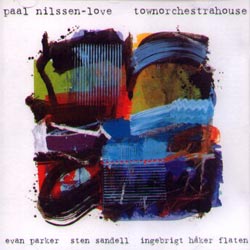
In Stock
Quantity in Basket: None
Log In to use our Wish List
Shipping Weight: 5.00 units
EU & UK Customers:
Discogs.com can handle your VAT payments
So please order through Discogs
Sample The Album:
Evan Parker-tenor saxophone, soprano saxophone
Sten Sandell-piano
Ingebrigt Haker Flaten-double bass
Paal Nilssen-Love-drums, percussion
Click an artist name above to see in-stock items for that artist.
UPC: 5609063000412
Label: Clean Feed
Catalog ID: CF041
Squidco Product Code: 5162
Format: CD
Condition: New
Released: 2005
Country: Portugal
Packaging: Jewel Tray
Recorded at decibel.no, at Byorkesterets Hus during the Kongsberg Jazzfestival 2002, by Thomas Hukkelberg.
Artist Biographies
• Show Bio for Evan Parker "Evan Parker was born in Bristol in 1944 and began to play the saxophone at the age of 14. Initially he played alto and was an admirer of Paul Desmond; by 1960 he had switched to tenor and soprano, following the example of John Coltrane, a major influence who, he would later say, determined "my choice of everything". In 1962 he went to Birmingham University to study botany but a trip to New York, where he heard the Cecil Taylor trio (with Jimmy Lyons and Sunny Murray), prompted a change of mind. What he heard was "music of a strength and intensity to mark me for life ... l came back with my academic ambitions in tatters and a desperate dream of a life playing that kind of music - 'free jazz' they called it then." Parker stayed in Birmingham for a time, often playing with pianist Howard Riley. In 1966 he moved to London, became a frequent visitor to the Little Theatre Club, centre of the city's emerging free jazz scene, and was soon invited by drummer John Stevens to join the innovative Spontaneous Music Ensemble which was experimenting with new kinds of group improvisation. Parker's first issued recording was SME's 1968 Karyobin, with a line-up of Parker, Stevens, Derek Bailey, Dave Holland and Kenny Wheeler. Parker remained in SME through various fluctuating line-ups - at one point it comprised a duo of Stevens and himself - but the late 1960s also saw him involved in a number of other fruitful associations. He began a long-standing partnership with guitarist Bailey, with whom he formed the Music Improvisation Company and, in 1970, co-founded Incus Records. (Tony Oxley, in whose sextet Parker was then playing, was a third co-founder; Parker left Incus in the mid-1980s.) Another important connection was with the bassist Peter Kowald who introduced Parker to the German free jazz scene. This led to him playing on Peter Brötzmann's 1968 Machine Gun, Manfred Schoof's 1969 European Echoes and, in 1970, joining pianist Alex von Schlippenbach and percussionist Paul Lovens in the former's trio, of which he is still a member: their recordings include Pakistani Pomade, Three Nails Left, Detto Fra Di Noi, Elf Bagatellen and Physics. Parker pursued other European links, too, playing in the Pierre Favre Quartet (with Kowald and Swiss pianist Irene Schweizer) and in the Dutch Instant Composers Pool of Misha Mengelberg and Han Bennink. The different approaches to free jazz he encountered proved both a challenging and a rewarding experience. He later recalled that the German musicians favoured a "robust, energy-based thing, not to do with delicacy or detailed listening but to do with a kind of spirit-raising, a shamanistic intensity. And l had to find a way of surviving in the heat of that atmosphere ... But after a while those contexts became more interchangeable and more people were involved in the interactions, so all kinds of hybrid musics came out, all kinds of combinations of styles." A vital catalyst for these interactions were the large ensembles in which Parker participated in the 1970s: Schlippenbach's Globe Unity Orchestra, Chris McGregor's Brotherhood of Breath, Barry Guy's London Jazz Composers Orchestra (LJCO) and occasional big bands led by Kenny Wheeler. In the late 70s Parker also worked for a time in Wheeler's small group, recording Around Six and, in 1980, he formed his own trio with Guy and LJCO percussionist Paul Lytton (with whom he had already been working in a duo for nearly a decade). This group, together with the Schlippenbach trio, remains one of Parker's top musical priorities: their recordings include Tracks, Atlanta, Imaginary Values, Breaths and Heartbeats, The Redwood Sessions and At the Vortex. In 1980, Parker directed an Improvisers Symposium in Pisa and, in 1981, he organised a special project at London's Actual Festival. By the end of the 1980s he had played in most European countries and had made various tours to the USA, Canada, Australia, New Zealand and Japan. ln 1990, following the death of Chris McGregor, he was instrumental in organising various tributes to the pianist and his fellow Blue Notes; these included two discs by the Dedication Orchestra, Spirits Rejoice and lxesa. Though he has worked extensively in both large and small ensembles, Parker is perhaps best known for his solo soprano saxophone music, a singular body of work that in recent years has centred around his continuing exploration of techniques such as circular breathing, split tonguing, overblowing, multiphonics and cross-pattern fingering. These are technical devices, yet Parker's use of them is, he says, less analytical than intuitive; he has likened performing his solo work to entering a kind of trance-state. The resulting music is certainly hypnotic, an uninterrupted flow of snaky, densely-textured sound that Parker has described as "the illusion of polyphony". Many listeners have indeed found it hard to credit that one man can create such intricate, complex music in real time. Parker's first solo recordings, made in 1974, were reissued on the Saxophone Solos CD in 1995; more recent examples are Conic Sections and Process and Reality, on the latter of which he does, for the first time, experiment with multi-tracking. Heard alone on stage, few would disagree with writer Steve Lake that "There is, still, nothing else in music - jazz or otherwise - that remotely resembles an Evan Parker solo concert." While free improvisation has been Parker's main area of activity over the last three decades, he has also found time for other musical pursuits: he has played in 'popular' contexts with Annette Peacock, Scott Walker and the Charlie Watts big band; he has performed notated pieces by Gavin Bryars, Michael Nyman and Frederic Rzewski; he has written knowledgeably about various ethnic musics in Resonance magazine. A relatively new field of interest for Parker is improvising with live electronics, a dialogue he first documented on the 1990 Hall of Mirrors CD with Walter Prati. Later experiments with electronics in the context of larger ensembles have included the Synergetics - Phonomanie III project at Ullrichsberg in 1993 and concerts by the new EP2 (Evan Parker Electronic Project) in Berlin, Nancy and at the 1995 Stockholm Electronic Music Festival where Parker's regular trio improvised with real-time electronics processed by Prati, Marco Vecchi and Phillip Wachsmann. "Each of the acoustic instrumentalists has an electronic 'shadow' who tracks him and feeds a modified version of his output back to the real-time flow of the music." The late 80s and 90s brought Parker the chance to play with some of his early heroes. He worked with Cecil Taylor in small and large groups, played with Coltrane percussionist Rashied Ali, recorded with Paul Bley: he also played a solo set as support to Ornette Coleman when Skies of America received its UK premiere in 1988. The same period found Parker renewing his acquaintance with American colleagues such as Anthony Braxton, Steve Lacy and George Lewis, with all of whom he had played in the 1970s (often in the context of London's Company festivals). His 1993 duo concert with Braxton moved John Fordham in The Guardian to raptures over "saxophone improvisation of an intensity, virtuosity, drama and balance to tax the memory for comparison". Parker's 50th birthday in 1994 brought celebratory concerts in several cities, including London, New York and Chicago. The London performance, featuring the Parker and Schlippenbach trios, was issued on a highly-acclaimed two-CD set, while participants at the American concerts included various old friends as well as more recent collaborators in Borah Bergman and Joe Lovano. The NYC radio station WKCR marked the occasion by playing five days of Parker recordings. 1994 also saw the publication of the Evan Parker Discography, compiled by ltalian writer Francesco Martinelli, plus chapters on Parker in books on contemporary musics by John Corbett and Graham Lock. Parker's future plans involve exploring further possibilities in electronics and the development of his solo music. They also depend to a large degree on continuity of the trios, of the large ensembles, of his more occasional yet still long-standing associations with that pool of musicians to whose work he remains attracted. This attraction, he explained to Coda's Laurence Svirchev, is attributable to "the personal quality of an individual voice". The players to whom he is drawn "have a language which is coherent, that is, you know who the participants are. At the same time, their language is flexible enough that they can make sense of playing with each other ... l like people who can do that, who have an intensity of purpose." " ^ Hide Bio for Evan Parker • Show Bio for Sten Sandell "Composer / musician / producer - piano, organ, voice, electronics,Sound/Text/Image Real-Time Composer, Doctor of Philosophy In Fine Arts in Musical Performance and Interpretation, University of Gothenburg, 2013 Cooperation with musicians/composers including Emil Strandberg, Paal Nilssen-Love, Sverrir Gudjonsson, Johan Berthling, Evan Parker, Sven-Åke Johansson, Chris Cutler, Mats Persson, Sofia Jernberg, Carl-Axel Dominique, Mats Gustafsson, Nina de Heney and Raymond Strid. Music Inside the Language was winner of Contemporary Sound in 2011 of the Journal Contemporary Music. Music and visual arts, including Bo Samuelsson, Katarina Eismann, Inger Arvidsson. Music and dance, including Jukka Korpi, Ingrid Olterman, Bo Arenander, Anne Külper. Music and Drama including Fredrik Nyberg, Magnus Florin, Magnus Jacobsson, Willy Kyrklund, Karl Dunér, Rolf Skoglund, Peter Oskarson, Stina Ekblad and Jörgen Gassilewski. Sten Sandell was awarded the Royal Academy of Music's Jazz Award in 2012 with the motivation: "The pianist Sten Sandell is one of Swedish improvised music's most brilliant, captivating and independent voices. His musical activities are characterized by a strong artistic integrity, and he has with great consistency developed a characteristic aesthetic attitude that inspires countless musicians. " " ^ Hide Bio for Sten Sandell • Show Bio for Ingebrigt Haker Flaten "Ingebrigt Håker Flaten (b. 1971, Oppdal) - studied Jazz at the Music Consevatory in Trondheim, Norway (1992-1995) under the tutelage of bassplayer Odd Magne Gridseth. When one listens to the great bassists in modern jazz history, a striking thing (though it may not be immediately arrived at) is that greatness is reached through open-mindedness and diversity. William Parker, Malachi Favors Maghostut, Peter Kowald, Wilbur Ware, Bertram Turetsky, Buell Neidlinger - all of these bass players have embraced a lifestyle of playing all sorts of music and the breadth of each musicians' technique is a testament to those experiences. Norwegian bassist and composer Ingebrigt Håker Flaten is also a musician whose experience is both geographical and aesthetic. While the fertile Scandinavian new jazz scene offered a vast amount of opportunities to work in different bands with musicians whose concepts are as individual as the grains in a reed, Flaten has found home and on-the-bandstand education in places as far flung as Chicago and his current residence Austin, Texas. A muscular player whose tone and attack run the gamut from Paul Chambers to Buschi Niebergall, his sense of both openness and control serves ensembles as diverse as The Thing, Free Fall, Atomic, Scorch Trio and the Kornstad/Håker Flaten Duo. In addition to his own Chicago Sextet and Austin-centric Young Mothers, Flaten has also recorded and performed with Frode Gjerstad, Dave Rempis, Bobby Bradford, the AALY Trio, Ken Vandermark, Stephen Gauci, Tony Malaby, Daniel Levin, Dennis Gonzalez and numerous others. Flaten studied at the Conservatory in Trondheim (1992-1995), turning professional shortly afterward, yet his hunger to play in new situations with new musicians - schooled or amateur, frequently recorded or just starting out - puts him in a rare class, that of a truly broad-minded artist. That mettle has served him well, living and developing the music under his own steam and drawing from influences as diverse as Derek Bailey, George Russell, Chris McGregor, filmmakers Ingmar Bergman, contemporary pop melody and gritty punk music as well as everyday sights and sounds. There is a calmness and self-assuredness that imbues all great artists, in that the diversity of their work comes with very little ego. Flaten's artistry is often in collective, leaderless ensembles and in fact, following a decade of professional musicianship it wasn't until 2004 that his leader-debut was released - Quintet (Jazzland, followed in 2008 by The Year of the Boar, and a Sextet recording is upcoming). This latter fact is partly due to the necessity of a copacetic situation - in an interview in 2010 with the Austinist he noted that "I use people where I'm located. It's inspiring to have your own band to write for, but you have to make sure that people feel free and not limited by the music; the compositions should lead the way to a player's open mind, and that is a challenge." Certainly not every bandleader/composer thinks this way. In 2011, he formed another ensemble, The Young Mothers, which includes drummers Stefan Gonzalez (Dallas) and Frank Rosaly (Chicago), trumpeter/poet/rapper Jawaad Taylor (New York), saxophonist Jason Jackson (Houston), and Jonathan Horne (Austin) on guitar. It's a group of varying levels and influences and as it grows organically, will be another excellent lens through which to view Flaten's aesthetic, philosophy, and musicianship. The next few years see him in a position where established ensembles can steep and spread their influence, while experimenting with and nurturing a wide range of new relationships." ^ Hide Bio for Ingebrigt Haker Flaten • Show Bio for Paal Nilssen-Love "Paal Nilssen-Love was born in Molde, Norway, Dec 24. 1974, and raised at a jazz club in Stavanger, run by his parents. It was natural to choose his fathers drums as his instrument and jazz as his work. From 1990 on he took actively part in the jazz milieu in Stavanger and joined bands with established musicians such as trumpeter Didrik Ingvaldsen and saxophonist Frode Gjerstad. In many ways, these collaborations were essential as they pointed out the directions for Paal's later musical development and career. During his studies at the Jazz dept at the University in Trondheim, where the first self initiated bands were established, things developed really fast - and Paal was nationally acknowledged at the age of 20. The forming of the quartet Element in 1993 in many ways represented the start of a new phase in Paal's musical life. Element musically became a platform for several other groups with bassist Flaten and pianist Wiik, and lead to collaborations with Iain Ballamy and Chris Potter, amongst others. Paal moved to Oslo in 1996, where he joined and/or took part in the forming of bands like Vindaloo, SAN, Håkon Kornstad Tio, The Quintet and Frode Gjerstad Trio. He later on got more into self initiated projects and collaborations with Swedish musicians, such as pianist Sten Sandell and saxophonist Mats Gustafsson. Paal played his first solo concert in 1999, and since then the solo concept has been an important part of his work: "Everyone should try doing some solo work, just to feel who you really are and what gets you going". His solo album "Sticks and stones" was put out in 2001 on SOFA Rec. Being active in several bands at the same time has always been Paal's deliberate working method. He is constantly conscious about the projects he is in, as his participation in each and one of them is fully dedicated. Playing is not about getting from start to goal, but rather being in an everlasting process, a continuous movement where each new piece of music performed is a prolongation of the latest. Hence, keeping focused and concentrating all energy around what's happening there and then is of greatest importance - as is the freedom in the music, the ability of being free within the expression. All bands, although various styles and musical versatility in general, represent important pieces that make up a total, and all bands are formed or joined with a clear vision. Today Paal's portfolio includes Atomic, School Days, The Thing, Frode Gjerstad Trio, Sten Sandell Trio, Scorch Trio, Territory Band, FME, and various duo projects such as with reedmen Ken Vandermark, John Butcher, Mats Gustafsson, organist Nils Henrik Asheim and noise wizard Lasse Marhaug. And not to forget the recently joined Peter Brötzmann Chicago Tentet." ^ Hide Bio for Paal Nilssen-Love
11/18/2024
Have a better biography or biography source? Please Contact Us so that we can update this biography.
11/18/2024
Have a better biography or biography source? Please Contact Us so that we can update this biography.
11/18/2024
Have a better biography or biography source? Please Contact Us so that we can update this biography.
11/18/2024
Have a better biography or biography source? Please Contact Us so that we can update this biography.
Track Listing:
1. Town 32:48
2. Orchestra 29:28
3. House 8:31
Clean Feed
Parker, Evan
Jazz
Improvised Music
Paal Nilssen-Love
Quartet Recordings
Before April-2006
Search for other titles on the label:
Clean Feed.


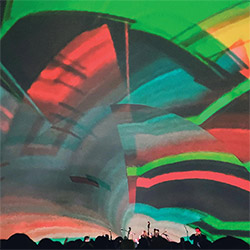
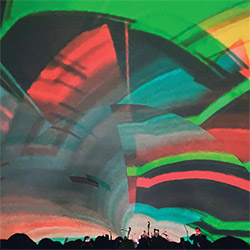







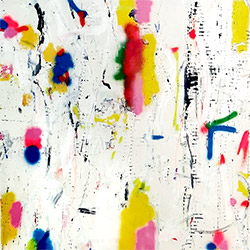

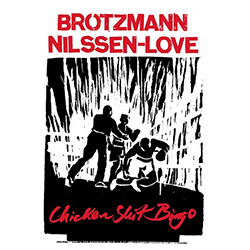
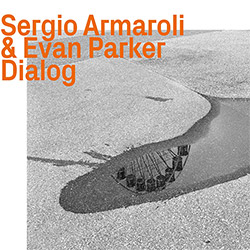

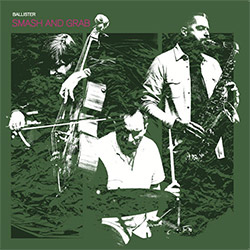
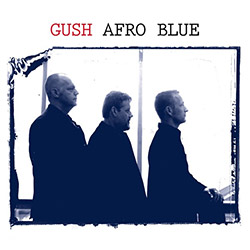
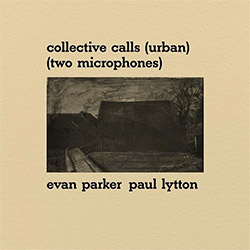

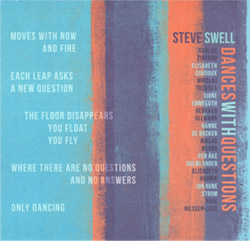




















![Barker / Parker / Irabagon: Bakunawa [VINYL]](https://www.teuthida.com/productImages/misc4/35533.jpg)
![Blaser, Samuel / Marc Ducret / Peter Bruun: Dark Was The Night, Cold Was The Ground [VINYL 10-inch]](https://www.teuthida.com/productImages/misc4/35492.jpg)










![Warren, Kenny (Warren / Hoffman / Ellman): Sweet World [VINYL]](https://www.teuthida.com/productImages/misc4/35451.jpg)


![Blake, Ran / Dave Knife Fabris: Live Amsterdam 2006, First Visit [CD + POSTCARDS]](https://www.teuthida.com/productImages/misc4/35275.jpg)
![Sanna, Claudio: Compositori Sardi Contemporanei II [2 CDs]](https://www.teuthida.com/productImages/misc4/35317.jpg)












![Nevai, Nandor: <<The PRICE of FRONTIER>> Book 1: FULK [BOOK + 4 CDs]](https://www.teuthida.com/productImages/misc4/35464.jpg)
![Nevai, Nandor: <<The PRICE of FRONTIER>> Book 2: MARTIAL [BOOK + 4 CDs]](https://www.teuthida.com/productImages/misc4/35465.jpg)
![Nevai, Nandor: <<The PRICE of FRONTIER>> Book 3: JASSOM [BOOK + 4 CDs]](https://www.teuthida.com/productImages/misc4/35466.jpg)
![Nevai, Nandor: <<The PRICE of FRONTIER>> Book 4: HARD-WON [BOOK + 4 CDs]](https://www.teuthida.com/productImages/misc4/35467.jpg)






![DNS: Taking Big Bites Of The Khandas Three Cafes Deep [2 CDs]](https://www.teuthida.com/productImages/misc4/35334.jpg)




![Cleaver, Gerald: The Process [VINYL]](https://www.teuthida.com/productImages/misc4/34966.jpg)




![Alva Noto: HYbr:ID II [VINYL 2 LPs]](https://www.teuthida.com/productImages/misc4/35201.jpg)

![Baron, Derek / Luke Martin: Distinct and Concealed [CASSETTE + DOWNLOAD]](https://www.teuthida.com/productImages/misc4/35079.jpg)

![Lyle, Erica Dawn : Colonial Motels [CASSETTE + DOWNLOAD]](https://www.teuthida.com/productImages/misc4/35080.jpg)







![Alva Noto: HYbr:ID III [VINYL 2 LPs]](https://www.teuthida.com/productImages/misc4/35011.jpg)
![Kubisch, Christina / Trondheim Voices: Stromsanger 2022 For Six Voices And Electromagnetic Waves [VINYL]](https://www.teuthida.com/productImages/misc4/34628.jpg)








![Zurria, Manuel: Fame di Vento [3 CDs]](https://www.teuthida.com/productImages/misc4/35167.jpg)

![Granberg, Magnus / Nattens Inbrott / Skogen: Holde Traume, Kehret Wieder! [2 CDs]](https://www.teuthida.com/productImages/misc4/35038.jpg)
![Frey, Jurg: Outermost Melodie [2 CDs]](https://www.teuthida.com/productImages/misc4/35039.jpg)

![Pavone, Jessica: Reverse Bloom [VINYL]](https://www.teuthida.com/productImages/misc4/34895.jpg)




![Modney (Modney / Wooley / Gentile / Roberts / Pluta / Symthe / ...): Ascending Primes [2 CDs]](https://www.teuthida.com/productImages/misc4/34852.jpg)








![Elephant9 with Terje Rypdal: Catching Fire [VINYL 2 LPs]](https://www.teuthida.com/productImages/misc4/35355.jpg)
![Deerlady (Obomsawin, Mali / Magdalena Abrego): Greatest Hits [VINYL]](https://www.teuthida.com/productImages/misc4/34876.jpg)




![Haino, Keiji: Black Blues [2 CDs]](https://www.teuthida.com/productImages/misc4/35109.jpg)



![Surplus 1980: Illusion of Consistency [CD]](https://www.teuthida.com/productImages/misc4/35069.jpg)
![Staiano, Moe: Away Towards the Light [VINYL + DOWNLOAD]](https://www.teuthida.com/productImages/misc4/35037.jpg)




![Caveira (Gomes / Sousa / Abras / Ferrandini): Ficar Vivo [VINYL]](https://www.teuthida.com/productImages/misc4/34643.jpg)
![Gregg, J. J. / David Van Auken: Lunar Prairie [CD w/ DOWNLOAD]](https://www.teuthida.com/productImages/misc4/34611.jpg)

![Coultrain: Mundus [VINYL]](https://www.teuthida.com/productImages/misc4/32439.jpg)
![Mattin: Songbook #6 [VINYL]](https://www.teuthida.com/productImages/misc4/27317.jpg)
![Punkappella: Wake Up [7-inch VINYL]](https://www.teuthida.com/productImages/misc4/17519.jpg)
![Residents, The: WARNING: UNiNC.: Live And Experimental Recordings 1971-1972 [VINYL 2 LPs]](https://www.teuthida.com/productImages/misc4/31521.jpg)
![Coultrain: Phantasmagoria [VINYL]](https://www.teuthida.com/productImages/misc4/30142.jpg)
![Lennon, Sean Ono: Asterisms [VINYL]](https://www.teuthida.com/productImages/misc4/34517.jpg)

![Rotem Geffen: The Night Is The Night [VINYL]](https://www.teuthida.com/productImages/misc4/34631.jpg)
![Coley, Byron: Dating Tips for Touring Bands [VINYL]](https://www.teuthida.com/productImages/misc4/17906.jpg)

![Lost Kisses: My Life is Sad & Funny [DVD]](https://www.teuthida.com/productImages/misc4/lostKissesDVD.jpg)